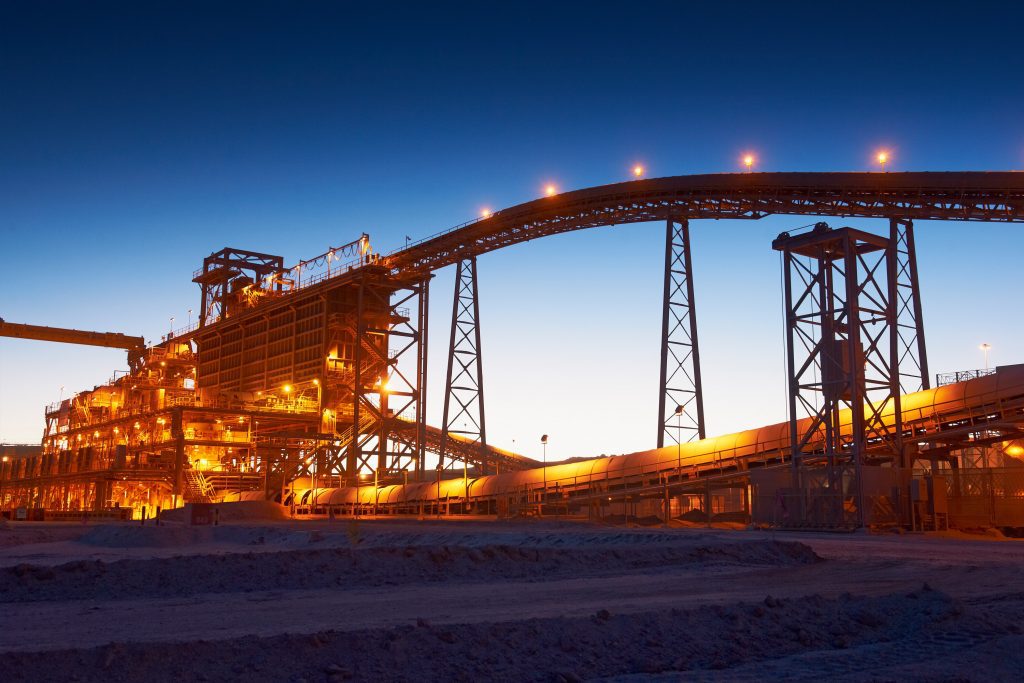Mitsui to expand LNG, iron ore assets despite signs of slowing economies

Japanese trading house Mitsui & Co plans to expand its liquefied natural gas (LNG) and iron ore assets to meet growing demand in Asia despite signs of a slowing global economy amid a prolonged U.S.-China trade row, its senior executive said.
“Energy and natural resources are our core growth driver and we will keep strengthening this area,” Yukio Takebe, Mitsui’s executive vice president, told Reuters in an interview on Tuesday.
Mitsui, which trades everything from corn to tankers, sees weakening demand in China in some areas such as automobile parts, but the protracted U.S.-Sino trade war and rising tensions in the Middle East will not slow its investments in LNG and iron ore, Takebe said.
Iron ore, coking coal and copper are Mitsui’s key focus among metals, but it also has an appetite for nickel
“Asian economies will continue to grow for sure. The U.S.-China trade dispute will not stop that,” he said.
“We won’t hesitate to invest just because of what’s happening right in front of our eyes as we invest in LNG and iron ore with long-term views,” said Takebe, who oversees Mitsui’s energy and metals businesses.
Betting on bigger appetites for the super-chilled fuel, Mitsui made final investment decisions (FIDs) on the Mozambique LNG project in June and Russia’s Arctic LNG 2 this month, and it plans FIDs in the early 2020s for the Browse gas project off northwest Australia and the Sakhalin 2 expansion in Russia, Takebe said.
Once the Mozambique and Arctic 2 projects come online, Mitsui’s annual LNG output capacity through its holdings will top 10 million tonnes a year.
LNG spot prices have plumbed three-year lows this year, but Mitsui is confident that LNG market will turn to a deficit as developed countries seek greener fuels and emerging countries look to new energy sources.
“The LNG market is oversupplied now as about 40 million tonnes of capacity has been added in the past year or two. But some predict a large shortage in 2035,” Takebe said.
The turn to a deficit could happen by the time Arctic 2 and Mozambique start up in 2023 and 2024, respectively, he said.
Iron ore, metals
Last year, Mitsui also announced investments in two iron ore projects in Australia.
Mitsui, which holds a 5.59% stake in Vale, expects the Brazilian miner to resume within one to three years most of the iron ore operations that were shut after the collapse of a tailings dam, Takebe said.
Iron ore, coking coal and copper are Mitsui’s key focus among metals, but it also has an appetite for nickel.
“Our nickel projects in Philippines have been successful and we’d be very interested if there are any good assets,” he said.
Mitsui racked up its first-ever net loss in the year ended March 2016, stung by a global commodities slump, but it has recovered since then and it is poised to book a record profit this business year on the back of higher prices for iron ore.
To avoid another year of loss, Mitsui has implemented measures to cushion itself from another sharp commodities downturn such as cutting operation and financing costs, and diversifying term contracts to increase the flexibility of deliveries in locations and timings, Takebe said.
(By Yuka Obayashi; Editing by Tom Hogue)
{{ commodity.name }}
{{ post.title }}
{{ post.date }}




Comments